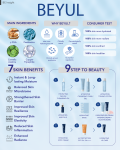Diabetes type 2 is a chronic disease that causes the body to fail to control the rise of glucose levels in the blood. If this situation continues without any treatment, it can lead to serious damage to organs such as the heart, blood vessels, eyes, kidneys, and nerves. Hence, access to an appropriate treatment is vital to long-term survival ⁽¹⁾.
In conjunction with the World Diabetes Day theme, “Access to Diabetes Care”, let us empower ourselves with knowledge and embrace the initial stride towards managing and preventing diabetes. The decisions that we make daily can have a significant impact on diabetes. Here are some essential aspects that we can look into;
KNOWLEDGE

Understanding the Types of Diabetes:
Understanding diabetes’s root causes and its risk factors is essential; we must understand what causes diabetes type 2 to happen and how to make healthy choices.
Know Your Risk Factors:
Be aware of your family medical history and personal risk factors for diabetes. If you are vulnerable, take proactive steps to prevent it.
LIFESTYLE⁽²⁾

Healthy Eating:
Knowing the nutritional value that we intake daily is to maintain stable blood sugar levels. Consume a balanced diet with plenty of fruits, vegetables, whole grains, and healthy fats. Limit your intake of processed foods, sugary beverages, and foods high in refined carbohydrates.
Avoid alcohol consumption:
Alcohol contains high levels of sugar that can spike up blood sugar levels.
Quit Smoking:
Smoking will double the chances of getting diabetes. Quitting smoking also can improve your overall health.
SELF-CARE

Regular Health Check-ups:
Regularly go for medical check-ups and screenings to monitor your overall health and diabetes risk.
Manage Stress:
Stress will increase the chances of diabetes risk. Seek healthy ways to manage stress, such as relaxation techniques, yoga, or hobbies that you enjoy.
Support System:
Seek support from family and close friends to help you stay motivated and encourage you in your efforts to prevent diabetes.
In many cases, diabetes and its complications can be delayed or prevented by adapting and maintaining healthy habits. We know that SLOW METABOLISM can also slowly lead us to Diabetes, this is because our body encounters excess insulin, which turns glucose into fat instead of energy.
A well-functioning enzyme will contribute to speeding up our body’s metabolism. It helps the body efficiently process and utilise glucose from the food that we consume into the body. It also helps our body’s cells to respond effectively to insulin, allowing glucose to enter cells into the blood and convert it into energy. ⁽³⁾
Other than that, the enzyme that we consume from the amazing essence from the plant helps our body to regulate the blood sugar blood viscosity level, by staying out the blood sugar entering the body’s cells so it can be used for energy. It provides the balanced nutrients that can cater for a healthy metabolism that support hormone insulin creation, which helps to control blood sugar levels. Due to the action, it helps to prevent damaging our blood vessels and reduce the risk of getting a blood clot. ⁽⁴⁾⁽⁵⁾
With BElixz ZENCOSO CHEWABLE BALL that is rich in high antioxidant properties and micro-sized molecules, it promotes nutrient absorption by the body while revitalizing and activating the body’s enzyme. Enriched with effective coenzymes and cofactors is to maintain healthy enzyme function and metabolism, it can help us to achieve a good body metabolism. As a result, BElixz ZENCOSO CHEWABLE BALL helps to improve bowel movement.
BElixz ZENCOSO CHEWABLE BALL is made of plant-based fermentation essence that contains 98 types of plants that have gone through complete natural fermentation for 8 years where nutrients have been broken down into micro-sized molecules to help to provide an essential nutrient and to regulate our body’s metabolism.
Remember! Prevention is key, wait no more, promotes a healthy glucose metabolism and a healthy lipid profile with BElixz ZENCOSO Chewable Ball.
References:
- World Health Organization: WHO. (2023).
- KKM, Kenyataan Media KPK 15 November 2022
- The Journal of Clinical Endocrinology and Metabolism 2023.
- Medscape, 2000
- U.S. Department of Health and Human Services. (n.d.). What is metabolic syndrome?. National Heart Lung and Blood Institute, 2022, 2022



